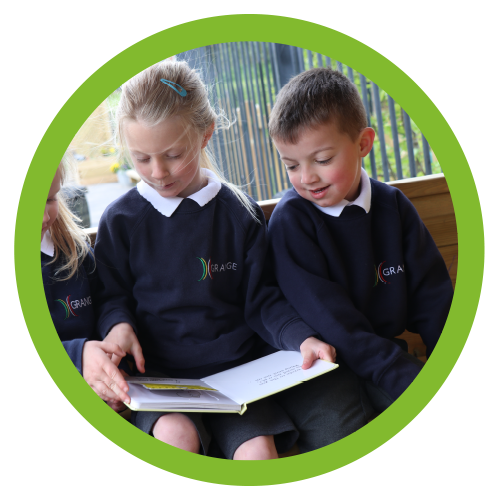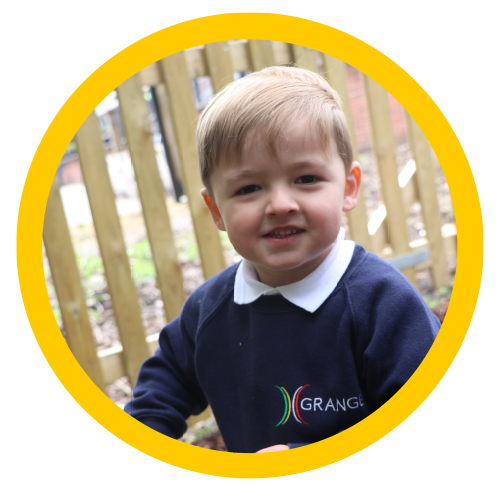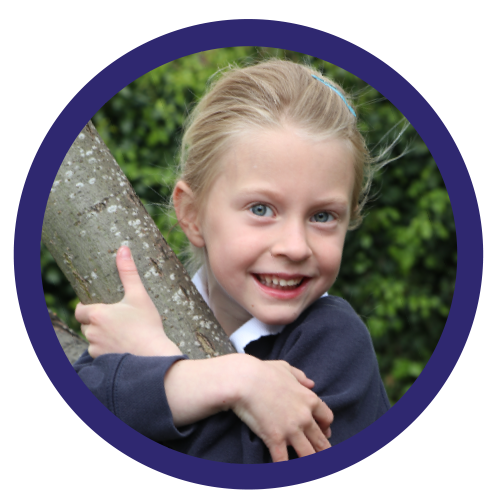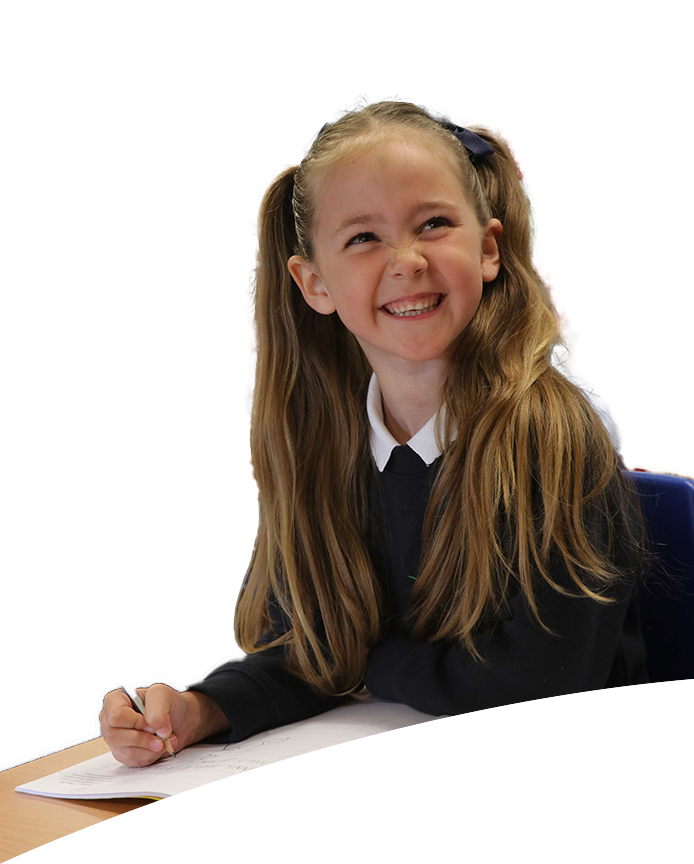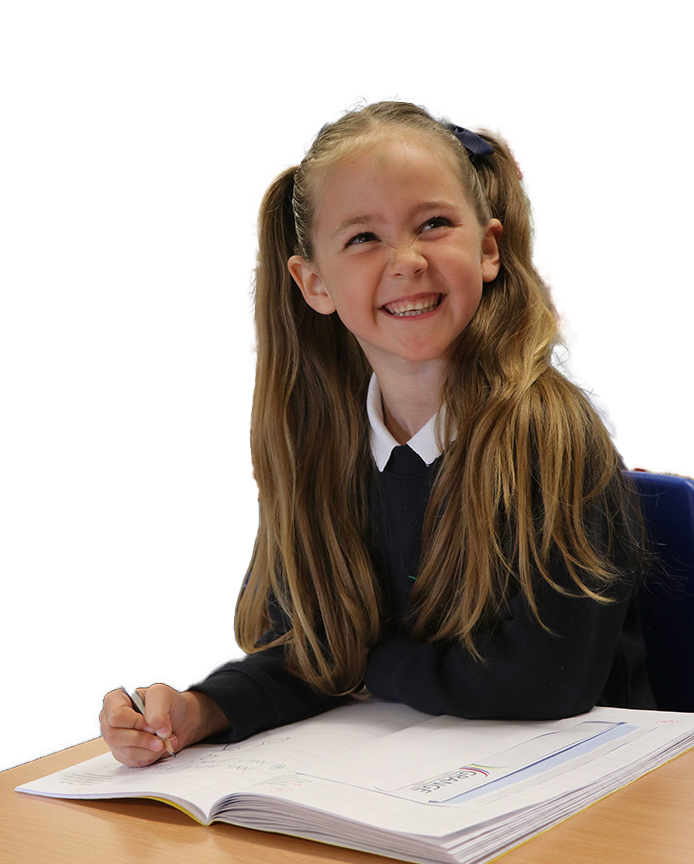Curriculum
Accountability
Curriculum
Design
Metacognitive
Principles
Intent, Implementation
and Impact
Curriculum
Accountability
Our leaders have co-constructed the curriculum to define our high ambition for curriculum outcomes.
Trustees & Governors
Trustees and Governors ensure that the curriculum underpins the mission, vision and values of the school and Weaver Trust. They work alongside the Headteacher to strategically focus on monitoring and challenging intent, implementation and impact.
Headteacher
Our Headteacher establishes the vision and high expectations for a high quality education. They ensure time and opportunity for staff engagement in curriculum design and review through collaboration, staff meetings and focused school improvement planning and monitoring. This ensures the enactment of curriculum intent is high quality. Our Headteacher ensures that Subject leaders are clear about expectations and work closely with Governors to focus on monitoring and challenging the right things. A whole school approach is established to engage and enthuse families in curriculum learning, so they can also be drivers of great learning in partnership with teachers.
Senior Leaders
(including PP Lead and SEND Lead)
Alongside the Headteacher, Senior Leaders ensure subject leaders are clear about expectations. They are responsible for leading staff meetings and focusing on the school improvement planning and monitoring to ensure the implementation of the curriculum is high quality and underpinned by research. SEND Lead is accountable to the Headteacher, and ensures the curriculum can be accessed by all, with provision made where required. Pupil Premium Lead is responsible for ensuring the curriculum provides the best possible outcomes for all children.
Subject Leaders
Subject Leaders are accountable to the Deputy and Headteacher and ensure that the vision and ambition for the school curriculum is translated into the detailed intent for their specific subject areas. They ensure they access the right support, within and beyond the school and share their ambitions and expectations in line with Weaver Trust and school expectations with all staff. They challenge and support curriculum enactment in line with their subject documentation and work in collaboration with other leaders to ensure sequencing shows progression and links are made naturally within subjects.
Class Teachers
Class teachers ensure they fully understand the expectations of the curriculum in our school and the ‘whys’ behind the decisions that have been made. They ensure they have a clear understanding of the curriculum progression documents and overview for their class, both within year groups, and across year groups. This understanding ensures they are clear about what expectations came before and come after and how the progression model across subjects works. They are a key champion to enthuse, motivate and engage families in children’s learning.
Teaching Assistants
Support staff, as partners of teachers, ensure their roles are clear in supporting the learning journey and that they have sufficient direction and understanding of the curriculum to support and extend the learning intentions through questioning and scaffold to learners. They ensure they further consolidate and champion the ambition of high expectations in how their school curriculum reflects this blueprint.
Leaders and all stakeholders have spent time collaboratively reviewing and discussing the core principles of high quality curriculum design and implementation. Educational research, local knowledge and our own school context have all been considered.
Language acquisition is the foundation of thinking and learning. Reading, vocabulary development and phonics – alongside opportunities which give real life experiences – are at the heart of our curriculum design. We have planned a coherent knowledge rich curriculum. Knowledge and skills being two sides of a coin – we know that through gaining knowledge, skills can be mastered. We have carefully considered where to position the experiences, knowledge and skills we believe our children need, in order to be successful on their learning journeys.
Our curriculum empowers teachers to deliver knowledge rich content across the wider curriculum. The sequences of learning deliver the statutory elements of the National Curriculum. Our children are given the time to master knowledge and skills. This in turn, ensures our immersive, connected curriculum leads to impact and improved outcomes for children.
Parents and carers can make an appointment with the Head of School to discuss the curriculum in more depth.
Curriculum
Design
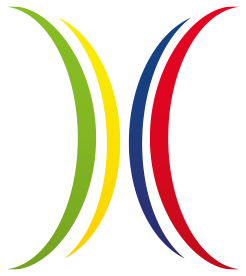
Interconnections
Our curriculum is linked with interconnections which help children develop a deeper understanding of carefully considered wider concepts. As with the knowledge rich curriculum, the interconnections are progressive and link children’s learning to modern day, ensuring they revisit the concepts in different contexts which refines and embeds understanding.

Religious &
Cultural Diversity
A particular system of faith and worship and various cultural, racial, and ethnic groups. We can learn from one another, but first we must have a level of understanding about each other in order to facilitate collaboration and cooperation.

Technological
Innovation
Developing new technologies for the betterment of society.

Empires
& Monarchy
An extensive group of states or countries ruled over by a single monarch, head of state or oligarchy. `The monarch (Queen/King) and royal family of a country.

Social
Change
Changes to the way a society functions, is governed and the behavioural norms of its people.

Environmental
Impact
Changes to the environment and exploring the impact humans and animals have on the environment.Changes to the way a society functions, is governed and the behavioural norms of its people.

Displacement
& Invasion
Displacement is the movement of people from their home or home region, either voluntary or forced. Displacement is also known as migration. Invasion is an instance of forcefully entering a country or region with an armed force.

Individuality
Awareness of self as an individual and knowing that you have the right to be your own person.
Metacognitive
Principles
Metacognitive principles drive our curriculum intent & implementation
Our curriculum content has been produced using educational research into how children learn. As a result, the way we teach aims to maximise opportunities for our children to retain key knowledge for the longer term.
There are many opportunities to revisit interconnections, key vocabulary and knowledge over time to secure understanding to long-term memory.
Retaining Information for the Long Term: What We Already Know
The human brain can only process a small amount of new information at once. Igniting what children already know supports the process and aids the link between working and long-term memory. The Frontal Cortex contains parts of the brain that connect new knowledge to prior knowledge so that it is stored in long term memory. These cortex areas in children are quite immature and don’t strengthen naturally until the late teenage years. Therefore, our teachers specifically teach how to make use of this natural memory support and encourage children to make connections to the schema they already have, whatever that schema may be.
![]()
Theory of Cognitive
Development
John Piaget’s theory talks about our use of schema to build our knowledge of the world. Put simply, our schema are our ideas about something based on prior knowledge. Activating our schema helps us to understand more and remember more by linking it to what we already know and expanding our existing schemas with new information. If we consider Willingham’s quote, ‘memory is the residue of thought’ we cannot assume to see learning happen within one lesson. We need to see children remembered at some point in the future. With this in mind, we have a comprehensive assessment model to support effective formative and summative assessment. These include the use of pre and post learning tasks.
![]()
Metacognitive and Self-Regulation: What We Already Know
Metacognition and self-regulation approaches aim to help pupils think about their own learning more explicitly, often by teaching them specific strategies for planning, monitoring and evaluating their learning. Self-regulated learners are aware of their strengths and weaknesses and can motivate themselves to engage in and improve their learning. To facilitate this, our teachers develop pupils’ metacognitive knowledge, (their awareness of themselves as learners), by helping children to plan, monitor and evaluate their learning, alongside cognitive strategies (techniques of how to learn).
![]()
Igniting Prior Learning
Our curriculum ignites in children what they already have experience of. We make learning links between subject matter taught and the children’s own prior experiences, prior learning or memories.
![]()
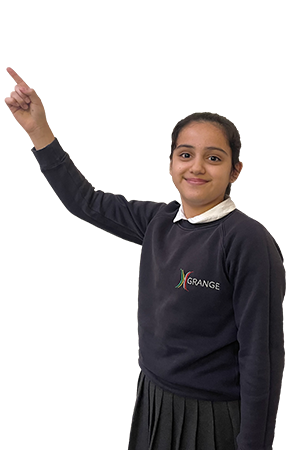
Curriculum
Intent, Implementation, Impact
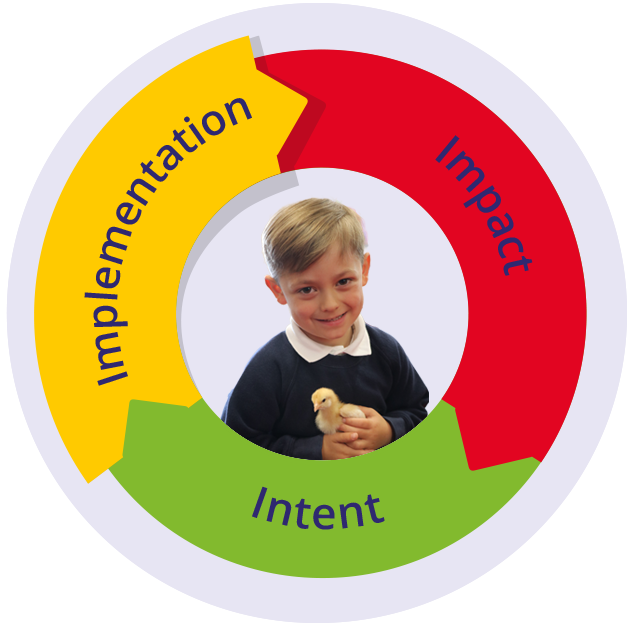
Curriculum intent is our ambition for children’s learning as detailed within our content, structure, sequence and pace of the curriculum map. Curriculum intent is realised through fundamental principles and informed decision making about vocabulary and knowledge acquisition.
Curriculum implementation and the ‘enacted’ curriculum is the realised vision in plans and practice.
We have specific areas of implementation – this ensures our curriculum is adaptable and responsive to the changing world.
Implementation cannot be seen in isolation from robust and rigorous review. For example, in reviewing core knowledge learned and remembered, we can review the effectiveness of instructions and opportunities to revisit interconnections, key vocabulary and knowledge over time to secure understanding to long-term memory.
The impact of the curriculum is the evidence of our school’s efforts. We use a wide range of measures to test the impact of the
intended curriculum. Our curriculum is not calved into stone. We evaluate annually the successes.
Curriculum
Intent
Language acquisition is the foundation of thinking and learning. Reading, vocabulary development and phonics – alongside opportunities which give real life experiences – are at the heart of our curriculum intent. We have planned a coherent knowledge-rich curriculum, which is progressive in knowledge, skills and vocabulary. All key drivers, including interconnections and metacognitive strategies, are well considered, in order for children to be successful on their learning journey.
All subjects are progressively mapped out, to include the aims of the National Curriculum, statutory objectives, prior knowledge, new subject specific knowledge, prior skills and vocabulary, new skills and vocabulary, as well as links to interconnections and metacognition strategies.

Curriculum
Implementation
The intent of our curriculum is our ambition for children’s learning, which is detailed within the structure and sequence of our curriculum map. To realise this vision, and ensure the implementation is rigorous and robust, we use ten key areas.
These areas ensure that the intent is implemented to develop cultural capital, diversity and global citizenship to ensure our children become well-rounded citizens who will make a positive contribution to the world in which they live.
Our Implementation
Click below to find out more
Curriculum
Impact
The impact of our curriculum will show itself not only the outcomes our children achieve, but their readiness for the next stage in their education.
We expect all of our children, whatever their starting point, to make academic progress. But the impact of our curriculum will also be seen through the ability of our children to be resilient, tolerant, moral citizens, who know how their actions, thoughts and opinions can make an impact on others, and in the world we live in.
